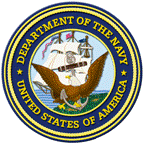United States Department of Defense

United States Navy: Publications
Date of this Version
2014
Citation
Carter, Walter E. Jr. (2014) "Education That Matters," Naval War College Review: Vol. 67 : No. 2 , Article 3.
Available at: https://digital-commons.usnwc.edu/nwc-review/vol67/iss2/3
Abstract
THE YEAR 2014 MARKS the 130th anniversary of the General Order that established the Naval War College to conduct “an advanced course of professional study for naval officers.” Over the ensuing decades the College has expanded to include students from all military services, from nationalsecurity- related agencies, and from over sixty-five allied nations. Today, the College is organizationally adaptable, educationally flexible, and more Fleet relevant than ever. The decisions officers make to seek out a service college education are complex, and we are working to make the Naval War College an irresistible choice for our brightest and best young officers.
An officer’s career of twenty to twenty-five years can have as few as a half-dozen decision points when key assignment choices must be made. Many of these choices are essentially “hardwired” as mandatory “career gates” necessary to achieve duecourse progression within a chosen community. At the same time, promotion within the officer community is a highly competitive process, and thoughtful officers carefully weigh the advantages that each potential job will bring in terms of increased operational experience, development of executive and decision-making skills, and expansion of their knowledge of “big picture” issues necessary to provide leadership at the most senior levels. Even with the need to stay on a careerrelevant “glide slope,” every career has time for professional development, and I would argue that there is no better or faster way for officers to transition from platform-centric expertise to executive leadership competence than completion of the Naval War College program. The investment of one year of study will pay significant dividends for the remainder of their careers. We recognize, however, that there have been administrative hurdles that may have discouraged some “hot-running” officers from seeking the benefits that a service-college education can provide. We are committed to addressing these important issues and removing these impediments to the maximum extent possible.
Included in
Educational Administration and Supervision Commons, Higher Education Commons, Social and Philosophical Foundations of Education Commons

